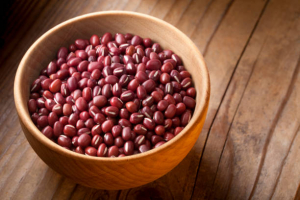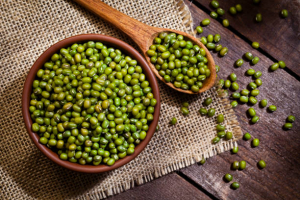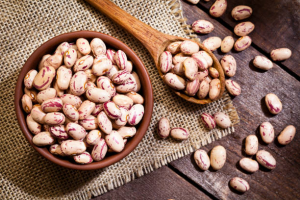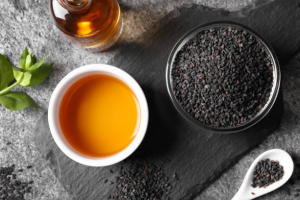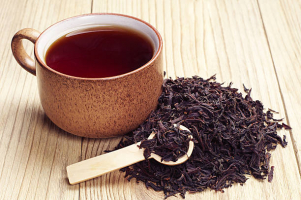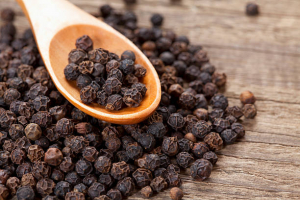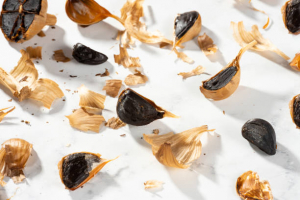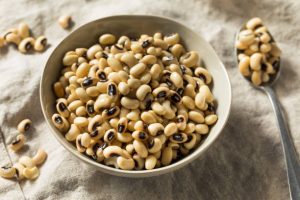Top 6 Health Benefits of Black Beans
The common bean is commonly referred to as black beans. Along with chickpeas, they are among the most popular dry grain pulses or legumes. Black beans are a ... read more...common component in Latin American and Caribbean cooking and have their origins in South America. They are nutritious powerhouses and provide a host of health advantages, such as better blood sugar regulation and a lower chance of contracting conditions like heart disease and type 2 diabetes. Here are the most impressive health benefits of black beans.
-
Black beans are a legume, also known as a pulse — a food group with a unique nutritional profile. One cup (172 grams) of boiled, unsalted black beans contains:
- Calories: 227
- Protein: 15 grams
- Fat: 1 gram
- Carbs: 41 grams
- Fiber: 15 grams
- Folate: 64% of the daily value (DV)
- Copper: 40% of the DV
- Thiamine: 35% of the DV
- Manganese: 33% of the DV
- Magnesium: 29% of the DV
- Iron: 20% of the DV
- Phosphorus: 19% of the DV
- Potassium: 13% of the DV
- Vitamin B6: 7% of the DV
- Calcium: 2% of the DV
- Selenium: 2% of the DV
As you can see, black beans are especially rich in fiber and plant-based protein, two nutrients that lessen the risk of chronic diseases that are often lacking in Westernized diets. With a protein digestibility of 79%, their protein is very easily assimilated. In contrast to animal-based sources, black beans are actually regarded as an environmentally sustainable source of protein. This healthful legume offers soluble, insoluble, and resistant starch, all of which are linked to a number of its advantages. In addition, black beans include a lot of B vitamins, selenium, and calcium. The provenance of the beans, however, can have a significant impact on their total mineral composition. They also include certain antinutrients, which are substances that may prevent the mineral's absorption, despite having a high iron level.
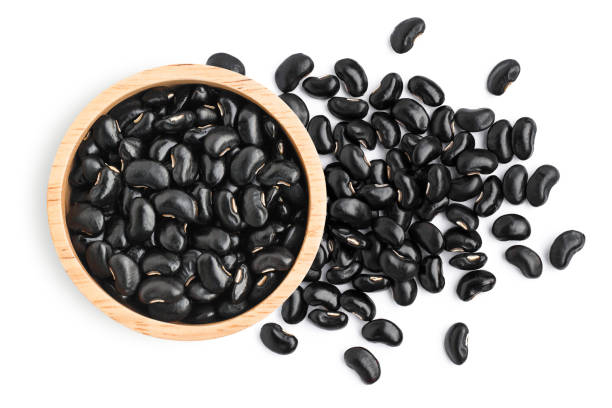
High in nutrients 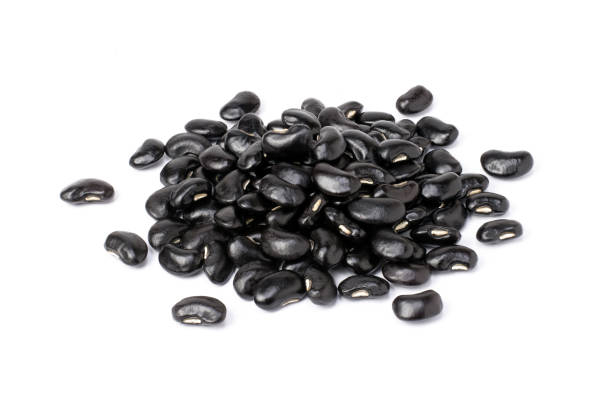
High in nutrients -
Antioxidants abound in black beans. These are substances that can combat the oxidative processes connected to chronic illnesses by neutralizing free radicals. Because of this, antioxidants included in black beans may help reduce the chance of developing heart disease, type 2 diabetes, and several forms of cancer. Black beans in particular provide a substantial quantity of polyphenols, particularly anthocyanins. Anthocyanins may provide advantages for those with type 2 diabetes. They give beans their black color and are mostly found in the seed coat. They are also in charge of giving red and pink bean cultivars their color.
Black beans also contain flavonoids, which include catechin, quercetin, myricetin, and kaempferol. These may be able to prevent heart disease and fight cancer. Be aware that boiling and storing may cause the antioxidant content of the beans to diminish, with larger losses occurring at higher temperatures. Therefore, make sure they are kept in a cold pantry.
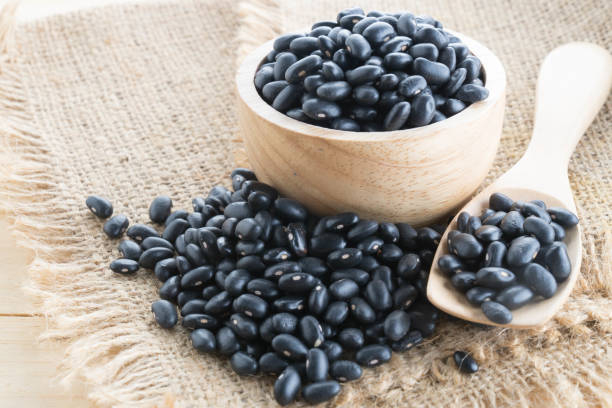
Rich in antioxidants 
Rich in antioxidants -
By including black beans in your diet, you may be able to reduce your blood pressure and cholesterol levels. Black bean saponins, for instance, have antioxidant and cholesterol-lowering properties. The fiber in the beans could also lower blood triglycerides and total cholesterol levels. According to research, there may be a 27 percent reduction in the risk of death from heart disease for every 10 grams of total fiber taken. Similar to this, taking in 5 to 10 grams of soluble fiber daily may lower LDL (bad) cholesterol levels by 5%.
According to another research, those who consume beans, particularly black beans, had an 11 percent lower chance of developing heart disease than those who do not. Another research, however, discovered that taking 1/2 cup (113 grams) of beans per day had no appreciable impact on cholesterol levels. Therefore, it's probable that the advantages for your heart will only become apparent if you consume more beans each day than this portion size. Additionally, studies have discovered an inverse relationship between bean fiber consumption and blood pressure, with higher fiber intakes leading to lower readings. Black bean flavonoids may also promote muscular relaxation and reduce platelet aggregation, which both contribute to the blood pressure-lowering impact.
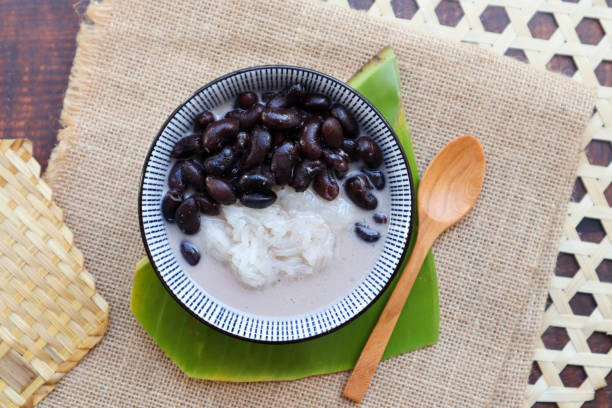
May promote heart health 
May promote heart health -
Black beans' fiber and antioxidant content may help with blood sugar regulation. First off, studies have shown that foods high in anthocyanidins enhance insulin sensitivity or the way your cells react to the hormone insulin. After a meal, this may result in reduced blood sugar levels. Additionally, alpha-amylase, maltase, and sucrase activity — three enzymes that aid in carb digestion — may be inhibited by anthocyanidins, which would further encourage lower blood sugar levels after eating. Second, the glycemic index (GI) of a meal can be enhanced by the fiber in black beans.
The GI assesses a food's potential to raise your blood sugar levels. Black beans are regarded as a low GI meal since their GI falls between 29 and 38. This indicates that they result in a gradual rise in blood sugar. According to studies, eating meals that contain as little as 1/2 cup (86 grams) of black beans will lower the meal's GI, which can help regulate blood sugar levels for up to 120 minutes after eating. This occurs as a result of the fiber in the beans lengthening the transit time and volume of the stool in the gut, allowing for gradual glucose absorption. Fiber also slows down digestion, which further delays the absorption of glucose into the system.

May help manage blood sugar levels 
May help manage blood sugar levels -
Due to the flavonoids included in the seed coat of black beans, it has been demonstrated that they lower the chance of developing certain malignancies. Three of the eight flavonoids that have been discovered in the seed coat are anthocyanins. In essence, flavonoids are phytonutrient pigments that provide color and act as antioxidants in the body to fend against illness and free radicals. Speckled, crimson, and black bean varietals are more bioactive than non-pigmented beans and exhibit antioxidant and antiproliferative properties, according to research by Maria Neve Ombra et al (Journal of Agricultural and Food Chemistry 2006).
By contributing to the supply of the essential amino acids and molybdenum, black beans can also assist the neurological system work more effectively. They are rich in folate or vitamin B9, respectively. The control of certain amino acids needed by the nervous system is significantly influenced by folate, sometimes referred to as folic acid. According to studies, a lack of dietary folate raises homocysteine levels, which might be a risky sign of neurodegenerative disorders like Parkinson's disease. Regularly including black beans in your diet will help your body maintain healthy amounts of folate and lower your chance of developing such disorders.
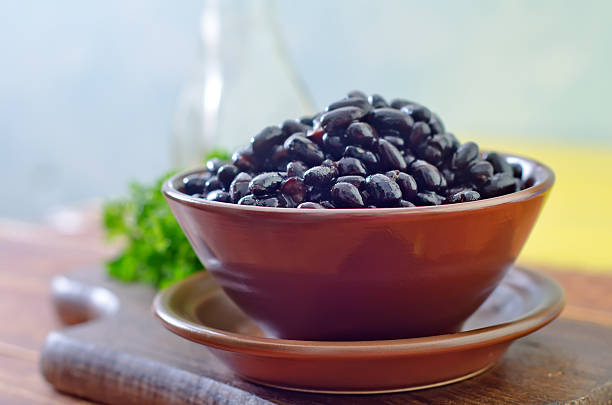
May Have Anticancer Properties 
May Have Anticancer Properties -
According to studies, black beans may have significant levels of molybdenum, a rare mineral that is uncommon in the diet. Molybdenum is crucial for a variety of processes, chief among them being the breakdown and detoxification of sulfites. Many people are extremely sensitive to the effects of sulfites, which include a headache and dizziness. Sulfites are acidic chemicals that are present in wine, dried fruits, and some vegetables. Black beans include molybdenum, which counteracts these effects and cancels off the harmful effects so that individuals may once more enjoy those meals. Additionally, molybdenum aids in the growth of the nervous system and the synthesis of cell energy.
Additionally, frequent use of molybdenum has been demonstrated to lessen impotence and erectile dysfunction in elderly males. This uncommon vitamin has frequently been connected to elderly men's enhanced energy and enthusiasm for sex.

Have Remedial Effects on Sexual Dysfunction 
Have Remedial Effects on Sexual Dysfunction








